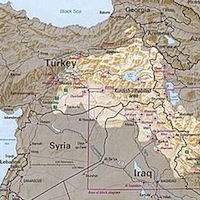The latest absurdity of national security theatrics has been revealed by the Snowden leaks:
Not limiting their activities to the earthly realm, American and British spies have infiltrated the fantasy worlds of World of Warcraft and Second Life, conducting surveillance and scooping up data in the online games played by millions of people across the globe, according to newly disclosed classified documents.
I think someone at the NSA conned their bosses into letting them play World of Warcraft at work…
But for all their enthusiasm — so many C.I.A., F.B.I. and Pentagon spies were hunting around in Second Life, the document noted, that a “deconfliction” group was needed to avoid collisions — the intelligence agencies may have inflated the threat.
It’s just one more example of how the U.S. government has ramped up an expensive and invasive façade of protection that provides no real safety. It’s pure theater, much like most of the arcane airport security rules and carry-on restrictions.
Former American intelligence officials, current and former gaming company employees and outside experts said in interviews that they knew of little evidence that terrorist groups viewed the games as havens to communicate and plot operations.
Games “are built and operated by companies looking to make money, so the players’ identity and activity is tracked,” said Peter W. Singer of the Brookings Institution, an author of “Cybersecurity and Cyberwar: What Everyone Needs to Know.” “For terror groups looking to keep their communications secret, there are far more effective and easier ways to do so than putting on a troll avatar.”



 Sometimes the role of government isn’t about the really big things. Sometimes, it’s just about the little things that affect everything else.
Sometimes the role of government isn’t about the really big things. Sometimes, it’s just about the little things that affect everything else.